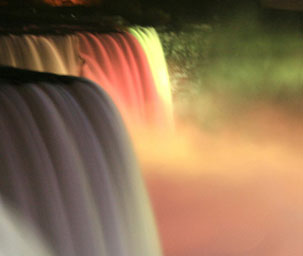| 鍐欎綔绱犳潗锛氬叧浜庢槬鑺備範淇楃殑鑻辫 | |
http://english.dbw.cn銆€銆€
2012-02-18 09:37:56
|
|
|
The Spring Couplet, also called 鈥渃ouplet鈥?and 鈥渁 pair of antithetical phrases鈥? is a special form of literature in China. The Spring Couplet is composed of two antithetical sentences on both sides of the door and a horizontal scroll bearing an inscriiption, usually an auspicious phrase, above the gate. The sentence pasting on the right side of the door is called the first line of the couplet and the one on the left the second line. On the eve of the Spring Festival, every household will paste on doors a spring couplet written on red paper to give a happy and prosperous atmosphere of the Festival. In the past, the Chinese usually wrote their own spring couplet with a brush or asked others to do for them, while nowadays, it is common for people to buy the printed spring couplet in the market. 鈥滄槬鑱斺€濅篃琚О涓哄拰鈥滃鑱斺€濆绔嬬殑涓€瀵圭煭璇紝鍦ㄤ腑鍥芥槸涓€绉嶇壒娈婄殑鏂囧褰㈠紡銆傛槬鑱旀槸鐢辫创鍦ㄩ棬鍙d袱渚т袱缁勫绔嬬殑鍙ュ瓙缁勬垚锛屽湪闂ㄤ笂闈㈢殑妯壒閫氬父鏄竴涓悏绁ョ殑鐭銆傝创鍦ㄩ棬鍙充晶鐨勫彞瀛愯绉颁綔瀵硅仈鐨勪笂鑱旓紝宸︿晶鐨勪负涓嬭仈銆傞櫎澶曢偅澶╋紝姣忓閮戒細鍦ㄩ棬涓婅创涓婄孩绾稿啓鐨勬槬鑱旓紝浼犻€掑嚭鑺傛棩鍠滃簡鍜岀儹闂圭殑姘旀皼銆傚湪杩囧幓锛屼腑鍥戒汉閫氬父鐢ㄦ瘺绗旇嚜宸卞啓鏄ヨ仈鎴栬€呰鍒汉鍐欐槬鑱旓紝鑰岀幇鍦紝浜轰滑鏅亶鍦ㄥ競鍦轰笂涔板嵃鍒峰ソ鐨勬槬鑱斻€?/span> Set off firecrackers 鏀鹃灜鐐殑鑻辫浠嬬粛锛?/span> The firecracker is a unique product in China. In ancient China, the sound of burning bamboo tubes was used to scare away wild animals and evil spirits. With the invention of the gunpowder, 鈥渇irecracker鈥?is also called 鈥滈灜鐐産i膩np脿o鈥?(鈥滅偖鈥?in Chinese means gun) and used to foster a joyful atmosphere. The first thing every Chinese household does is to set off firecrackers and fireworks, which are meant to bid farewell to the old year and usher in the new. In the past few years, such an activity was completely or partially forbidden in big cities including Beijing due to fire and personal casualty caused by burning firecrackers. However, some Chinese thought that a Spring Festival without firecrackers was not lively enough and they burned firecrackers by stealth. So in recent years, the ban was canceled again. This shows that burning firecrackers is a very important activity during the Spring Festival. Sweeping the dust鎵皹鐨勮嫳璇粙缁嶄腑鑻卞鐓э細 鈥淒ust鈥?is homophonic with 鈥渃hen鈥濓紙灏橈級in Chinese, which means old and past. In this way, 鈥渟weeping the dust鈥?before the Spring Festival means a thorough cleaning of houses to sweep away bad luck in the past year. This custom shows a good wish of putting away old things to welcome a new life. In a word, just before the Spring Festival comes, every household will give a thorough cleaning to bid farewell to the old year and usher in the new. 鈥淒ust鈥濅笌鈥滃皹鈥濇槸璋愰煶锛堝皹鍦ㄦ眽璇腑鐨勬剰鎬濇槸鏃х殑鍜岃繃鍘荤殑锛夈€傝繖鏍凤紝鈥滃湪鏄ヨ妭鍓嶆壂灏樷€濇槸鎸囧交搴曟竻娲佹埧灞嬫壂闄よ繃鍘讳竴骞寸殑鍘勮繍銆傛涔犱織琛ㄨ揪浜嗘敹鎷炬棫浜嬬墿锛屾杩庢柊鐢熸椿鐨勭編濂芥効鏈涖€傛€讳箣锛屽氨鍦ㄦ槬鑺傚埌鏉ヤ箣鍓嶏紝涓轰簡鍛婂埆鏃у勾杩庢帴鏂板勾锛屽瀹舵埛鎴烽兘浼氬交搴曟墦鎵竴涓嬫埧灞嬨€?/span> |
|
| Author锛? 銆€銆€銆€Source锛? 澶ц€虫湹鑻辫 銆€銆€銆€ Editor锛? Wu Qiong | |
 涓枃绠€浣?/a>銆€|銆€
涓枃绠€浣?/a>銆€|銆€









